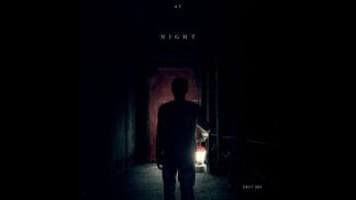Paranoia strikes deep in the post-apocalyptic nightmare of It Comes At Night

There’s an emptiness at the center of It Comes At Night, the newest film in distributor A24’s ongoing effort to become a household name for highbrow horror fans. And depending on how you view its symbolically loaded yet narratively simplistic approach to post-apocalyptic cinema, that emptiness can manifest as either the cold pit that forms in your stomach in the face of abject terror, or the frustration of fumbling for a light switch in a dark, empty room. Those looking for an identifiable “it” to terrorize the small band of survivors holed up in the secluded cabin where most of the film takes place won’t find what they’re looking for, and those searching for a message to take away from the film—or neatly wrapped up plot points—will be similarly stymied. Instead, what we get is blind animal panic, a nihilistic lashing out at the darkness that will one day swallow us all.
Like his debut feature Krisha, It Comes At Night was inspired by painful personal events in the life of director Trey Edward Schults, who wrote the film in the immediate aftermath of his father’s death. The rawness of that emotion translates to a palpable intensity, with the fear of losing those closest to you, either through death or through betrayal, smothering the film like a wet wool blanket. This is established very early on, as we open with a strikingly lit, morbidly beautiful image of an elderly man whose body is wracked with a bubonic plague-type disease, surrounded by people in gas masks in a room covered in plastic sheeting. We soon find out that the tearful visitors are the man’s family members, and the bullet they put in him before burning his body was an act of love.








































